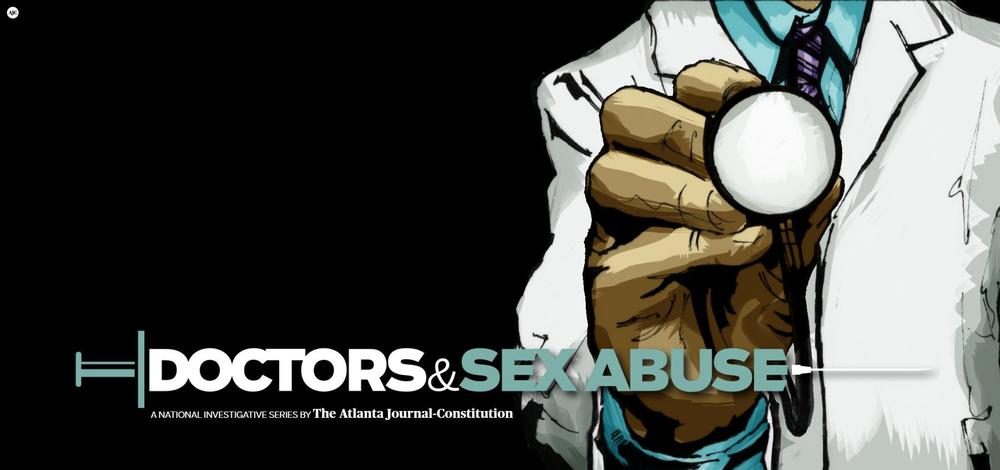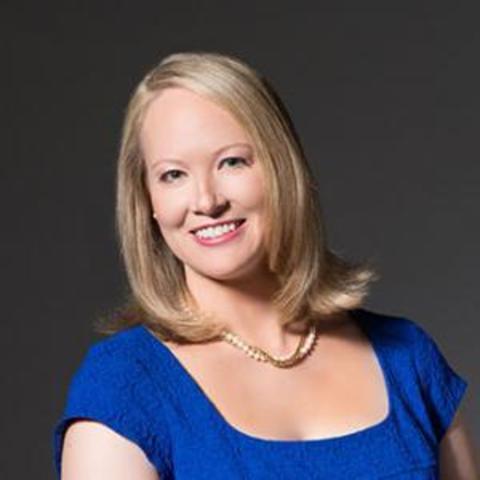WATCH LIVE | The Atlanta Press Club Loudermilk-Young Debate Series: Congressional District Three (R) At 1 P.M.
Section Branding
Header Content
'License to Betray,' The AJC Investigates Doctors And Sexual Abuse
Primary Content
A national investigation by the Atlanta Journal-Constitution finds thousands of doctors accused of sexually abusing patients are still practicing medicine.
AJC Editor Kevin Riley and investigative journalist Danny Robbins sat down with GPB's Rickey Bevington to discuss “License to Betray,” the AJC’s national investigation into thousands of court and medical board documents.
DISCLAIMER: The following conversation includes graphic sexual content.
Interview Highlights
On what some doctors are doing to patients
ROBBINS: It’s a wide spectrum of things starting with some consensual encounters. But, as you know, that’s still not allowed in the profession and is still actionable by a medical board. A lot of cases where examinations turn into something else. A lot of issues involving lewd language, which maybe on its surface does not sound that serious, but when you look at what is said and what is done to the patient is very serious. In a lot of cases with female patients, [they] would go in for abdominal pain, and the physician would touch the genital area for whatever reason – you know, none. Male patients going in for a rectal examination and it would be done in a certain way, that’s clearly wrong. A lot of cases like that.
On who the victims are
ROBBINS: What we looked closely at are patients. It was very much vicious cycle where a lot of the victims were very vulnerable, sometimes broken people. And when you think about it and look closely at it, the physicians know who these people are. They see their charts, they have intimate involvement with them. And then when a victim complains or makes an outcry, their credibility is challenged based on those very vulnerabilities which drew the physicians to them. Prior sexual abuse, drugs, anything. It’s very telling that so many of the victims had issues that they knew and it wasn’t ones without them.
On patients being sexually violated while unconscious
ROBBINS: Cases where victims were under anesthetic. How could they know anything? [They were unconscious] or coming right out of it and thought they were dreaming
On evidence the medical community is protecting doctors
RILEY: It’s a bad system. In fact, in only 11 states are medical boards required to report sexual abuse or inappropriate activity to police to investigate as a crime. So what goes on is that the medical board has wide discretion and may or may not decide. So a woman goes and complains about what a doctor has done to her. They don’t go ask for other patients, they don’t dig into this the way the police would, and it’s a crime. Many people are in prison right now for doing less than many of the doctors in our series have done. And people can read about this and read actual documents at ajc.com/doctors to see this information and it’s very alarming.
On other industries’ obligation to report crimes
RILEY: Think about it this way. In virtually every profession where you have to have a license or be licensed by a state board, there’s also an obligation, whether it’s ethical or legal, to report crimes that you become aware of. We have a situation where medical boards have patients who come to them and say ‘This doctor raped me’ and the medical board decides ‘Well, what we really need to do is try to rehabilitate this doctor.’ I mean, if a lawyer becomes aware of an accusation like that, they are obligated both legally and ethically to go to the police and make the police aware of that and let the criminal justice system take its course. Not so with doctors.
https://www.youtube.com/watch?v=L0do-HYzjBQ&feature=youtu.be
On victims coming forward as a result of the report
ROBBINS: We have an email set up for strictly for victims, and we’re hearing lots of cases where ‘This happened to me and nothing was done’ ‘Look at this’ ‘Look at that,’ yes.
RILEY: And we expect to hear from more, because part of what happens, as Danny pointed out, is these are very vulnerable people who won’t stand up well in a public forum accusing a prominent doctor of egregious behavior, and once they become aware of other people who’ve stood up, or they realize ‘Oh, my doctor is one of these bad actors,’ we think we are going to hear from a lot more victims.
On how many doctors in Georgia may be practicing medicine who have sanctions or allegations against them involving sexual misconduct
ROBBINS: It’s certainly dozens. Of every three that would be disciplined by the medical board, at least two of those three either keep their license, or lose it and get it back. And again, it’s a variety of issues. But some very serious cases. It’s treated as something that can be handled through rehabilitation and probation. Boundary training, and things like that.
RILEY: It’s all very secret, which is the important thing. If we know about three doctors because the cases were so horrible that they became public and the board acted, then we must believe that there were a lot of other cases that are dealt with in secret or are not made public. And this is a nationwide problem where medical boards are simply not required to let people know. You can find more out about your favorite local restaurant because of state laws and what they require than you can find out about your doctor.
ROBBINS: We were surprised, or at least I was, to find that the Georgia medical board issues private, confidential orders to physicians in sexual misconduct cases. And several other states do the same thing. In our story, we have several examples of where that happened. You wouldn’t know. It’s just a letter to the doctor.
Secondary Content
Bottom Content



